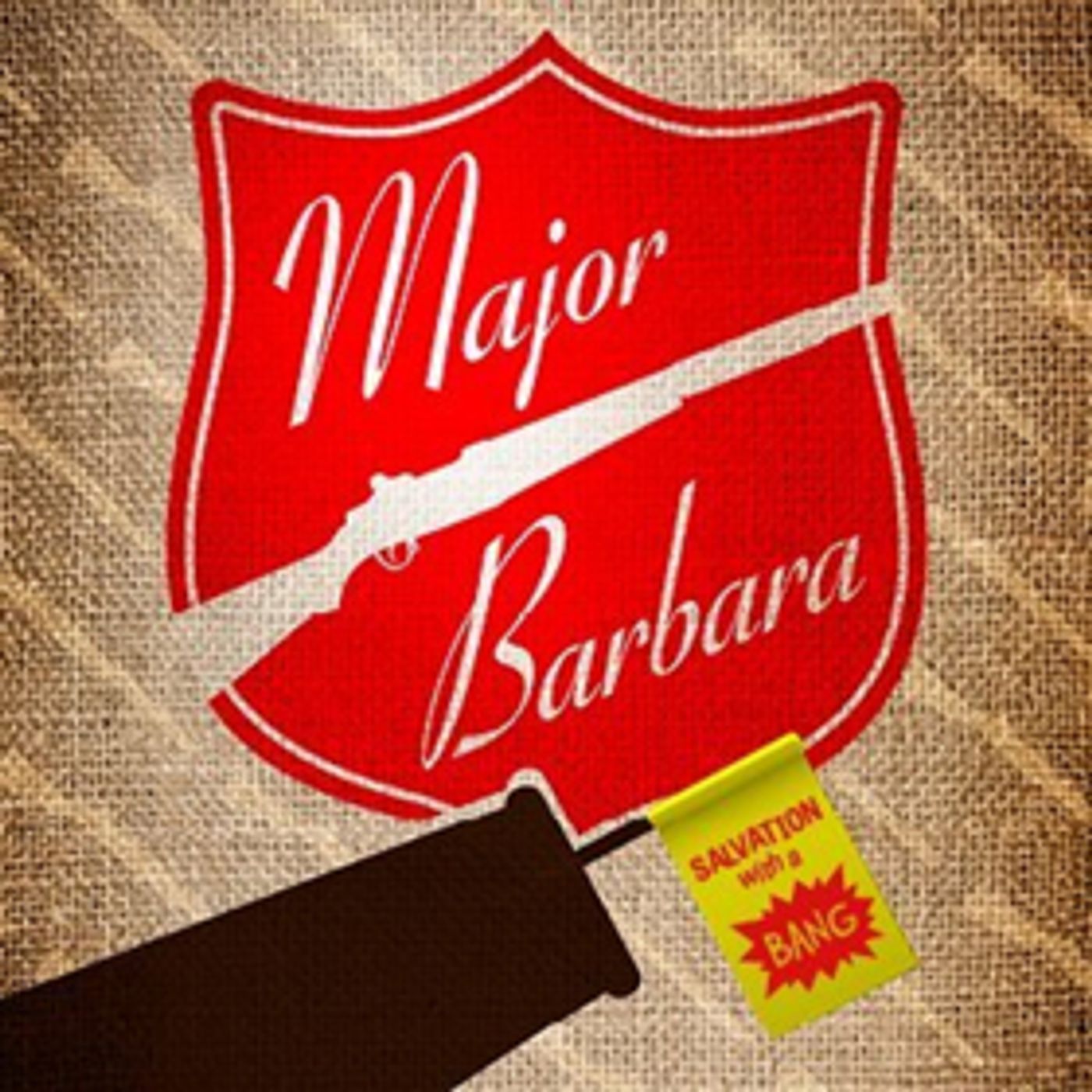Review: Grand Canyon University Presents MAJOR BARBARA

George Bernard Shaw's MAJOR BARBARA is a multi-layered, witty, and intellectually provocative discourse on questions that are as relevant today as they were at the turn of the twentieth century. What endeavors best serve the common good? Is it the capitalist who fuels the economy or the minister that seeks to save souls who occupies the higher ground? What responsibility do those of means have for those who are without?
Dr. Sherman Elliott (the Dean of Grand Canyon University's College of Humanities and Social Sciences) offers further context for the classic in his footnote to the school's current production of the play (at Ethington Theatre through February 18th):
"Perhaps Shaw is not only writing about personal and public moral dilemmas taking place in the years prior to World War I but is inviting a contemporary audience to explore the timeless tension between public and private ethical behavior. Is it hypocritical for non-profits and Christian charities which minister to the poor and vulnerable to accept donations from gun manufacturers or missile developers? What happens to our ethics when they conflict with economic prosperity?"
If there are conclusive answers to such questions, they will be revealed in a showdown between two exemplars of charity and commerce: Barbara Undershaft (Christine Ward), who has abandoned a promising future to serve a spiritual promise and her conscience as a Major in the Salvation Army, and her father, Andrew (Cameron Cluff), an armaments manufacturer and whiskey distiller lacking any qualms about the means to his fortune.
However, before these agents of mercy and mercenary engage, Shaw provides context and, in doing so, skewers the affectations and indulgences of the upper class. So, the play opens with an amusing and eye-opening introduction to Barbara's family and the circumstances that demand extreme measures.
Barbara's mother, Lady Britomart (Emily Sheppard) has been estranged from Andrew for several years, fending for herself, maintaining the upkeep of her family's lifestyle, and matchmaking to ensure that her offspring retain the pleasures to which they are accustomed.
Time and money, however, have run out. The family has the need. The man has the money ~ as she proclaims to her son Stephen (Ryan Ardelt), "Your father must be fabulously wealthy, because there is always a war going on somewhere." She has invited Andrew to meet the brood and to own up to his familial responsibility.
Prior to father's arrival, Lady Britomart convenes all her children ~ Stephen, Barbara and her beau Adolphus Cusins (Brandon Brown), and Sarah (Halee Conway) and hers Charles Lomax (Isaac Bills) ~ to prepare them for the coming encounter. The scene is a delightful exchange of colorful personalities and distinctive perspectives on status, manners and politics.
The pivot to the central question of Shaw's play turns on the double dare of Barbara and Andrew that each should visit the other's enterprise and determine which is really the more virtuous and impactful. For the "manufacturer of mutilation and murder," "the one true morality" lies in the fortune to be accrued from war. For Barbara, regardless the offenders' shortcomings or misdeeds, "They're all just the same sort of sinner; and there's the same salvation ready for them all."
What constitutes a "sinner" and how different are their misfortunes is the stuff of compelling and colorful performances by Trustin Adams, Osama Awadalla, Caleb Rainey, and Megan Sutton as down and out habitués of the Salvation Army's West Ham shelter.
Who wins the showdown, who makes the better and more convincing case ~ that is the stuff of the denouement that may shake and surprise an audience's expectations.
The young actors in this cast, under the direction of Michael Kary, do a yeoman's job of bringing the power and brilliance of Shaw's language ~ the engaging banter, the declarations of philosophy, and the stinging bon mots ~ to life with exuberance and clarity.
All the action occurs within William H. Symington V's minimalist set, accented quite cleverly by gun metal blue stage walls and torpedo-shaped lamps, complemented by Claude Pensis's lighting and Nola Yergen's costumes.
The bottom line is that MAJOR BARBARA is an intelligent and brilliantly crafted piece of literature, impressively performed by a cast of gifted young talents from the College of Fine Arts and Production, and deserving of a strong round of applause.
The show continues its run at GCU's Ethington Theatre in Phoenix through February 18th.
Poster credit to Grand Canyon University
Reader Reviews

Videos

